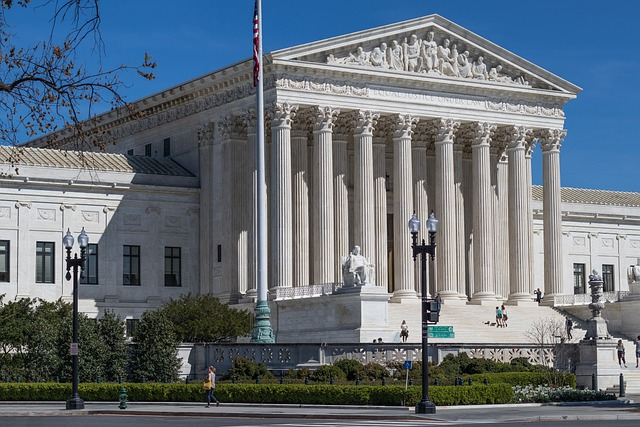Demystifying the Discovery Process in Civil Lawsuits
What is “discovery” in a civil lawsuit?
Discovery takes place during the pre-trial process—the phase between when the plaintiff’s case is filed against the defendant and when the trial begins. In a civil lawsuit, the plaintiffs file their case because they believe the defendant has harmed them physically, financially, or otherwise. Civil cases are typically resolved through financial compensation and have a lower burden of proof than criminal cases.
At its most basic, discovery is the formal process both sides go through to gather information about the case before a trial. Plaintiffs and defendants collect and exchange information and documents through a variety of discovery methods to flesh out their understanding of the case.
Certain relevant information may be solely within the possession of the defendant and, therefore, unavailable to a plaintiff at the time their case is filed. As such, discovery is crucial to building a case. While discovery rules vary by jurisdiction, the process generally calls for the production of information about “any non-privileged matter that is relevant to any party’s claim or defense.”

What is the purpose of discovery in a civil trial?
During this process, both sides of a litigation obtain discovery information before a trial and submit that evidence to a judge. But why does discovery matter?
Discovery is permitted to help attorneys and judges:
Set up a level playing field. While shock evidence may be common in TV crime dramas, real courts try their best to avoid surprises. Before the trial, both sides should know what evidence is going to be presented, so that they’re fully prepared with a response. Discovery helps prevent anyone from withholding evidence or witnesses from the court and seeks to ensure that both sides have the same information to work from. If both sides are fully equipped with the facts, they are better able to argue more specific legal issues in court.
Establish the scope of the case. Attorneys will narrow down what a case is about and identify relevant facts, which can keep the process from dragging on.
Resolve disputes. Discovery is a chance to learn more about your opponent’s case, which can help both parties decide whether they want to continue to trial or negotiate a settlement.
Analyze applicable legal issues. Based on the facts uncovered during the discovery phase of litigation, attorneys on both sides will conduct in-depth research into the legal issues in question to help them argue their case.
Streamline the trial. Trials are time-consuming. By establishing the facts of the case before entering the courtroom, plaintiffs and defendants can keep things moving during the trial phase.
File motions. Motions are written submissions to the court asking the judge to rule on some aspect of the case. They can help attorneys get access to the information they need, narrow the focus of the case, or even dismiss the case entirely.
Tools of the discovery process
Plaintiffs and defendants have a number of tools they can use to obtain information during discovery:
Interrogatories
Interrogatories are written requests sent by one party to another asking for answers to specific case-related questions. While each state has individual rules, the number of questions is usually limited. Typically, interrogatories are used to obtain basic information, such as details on people, corporations, facts, witnesses, document locations, and records. The recipient is required to answer in writing and under oath.
Depositions
Depositions are out-of-court testimony from a witness, taken under oath. They can help plaintiffs and defendants vet a potential trial witness and give counsel the chance to build their case around the testimony.
Depositions can be written in certain circumstances, but they are almost always taken orally. Oral depositions are usually attended by the witness providing the deposition, attorneys from all parties, and the person administering the oaths and recording the testimony. All parties have a chance to question the witness in oral examination, and lawyers are not permitted to coach their clients.
In most jurisdictions, information from an oral deposition is not directly admissible at trial, with three exceptions: if the witness admits something that goes against their interest; if the witness’s testimony at trial contradicts what they said in the deposition; or if the witness is unavailable at the trial.

Requests for admission
In a request for admission, one party will ask the other party to admit or deny a fact—such as the truth of a statement—under oath. A discovery request typically consists of multiple statements that can be admitted or denied and is used to authenticate information and establish basic facts of the case.
The information provided is binding, but requests for admission are typically not about proving guilt or liability. Instead, it helps the defendants and plaintiffs agree on certain basic facts (for example, their business addresses) so that they don’t need to be established during the trial.
Requests for production of documents
This is the most common way to gain access to documents during discovery. One party will ask the other for copies or originals of certain documents or other physical evidence related to the case. Where disputes arise, the parties can ask the court to compel the other side to provide the requested materials, as long as they are related to the case and not privileged.
In complex, multi-plaintiff litigations, the defendants’ document productions can be extremely large—requiring the plaintiffs’ attorneys to sift through tens of thousands if not millions of documents to find what they’re looking for.
What information is available through discovery requests?
Any information related to the lawsuit can be obtained through discovery, unless it’s “privileged,” or legally protected. This information can include documents, business information, reports of conversations, witness details, and much more.
However, several categories of information are protected from discovery. These include:
- The attorney’s work product, or work prepared by a lawyer for litigation.
- Confidential conversations between people with a privileged relationship—such as spouses, lawyers and clients, patients and doctors, and religious advisors and their advisees.
Additionally, the court may prevent the parties from having to produce certain sensitive or private information, including:
- Private matters that aren’t directly related to the case—for example, religion or sexual orientation. The implementation of this protection is controversial, however, and varies by state.
- The private information of people who aren’t directly involved with the lawsuit, such as coworkers or family members.
Depending on the subject of the litigation, the judge might enter a protective order to keep sensitive information that is produced to the parties in the litigation from being shared with non-parties or filed on the public record.

Left to right: Nicholas P. Kelly, Edward A. Wallace, Molly Condon Wells, Mark R. Miller, Jessica Wieczorkiewicz, Timothy E. Jackson.
The role of an attorney in discovery
Discovery is one of the single most important aspects of the litigation process. It defines the terms of the case and sets both sides up for success—or failure. A good attorney will have a thorough and nuanced grasp of the full discovery process and will work together with the defendant and the court to make sure your case is on the best possible footing going into trial.
A good plaintiff’s attorney will also be your advocate—which may include advising you to take a settlement before the trial process begins. Depending on the information gathered during discovery, both sides may agree that a settlement payout is a more effective remedy for the harm caused.
Questions about what discovery means for your lawsuit? Reach out to our legal team at (312) 261-6193. With over 75 years of collective experience in personal injury, class action, and mass tort law, Wallace Miller attorneys are experts in the legal process from filing to resolution.
Understanding What We Do: What Is Plaintiff Litigation & Why Is It Important?
What is litigation?
In legal terms, litigation is resolving disputes via the public court system. Any legal proceeding—whether that is a criminal lawsuit, a civil lawsuit, or a bankruptcy case—is a type of litigation.
Although often used interchangeably, litigation is not the same as a lawsuit. The term litigation refers to resolving disputes via the legal system, while a lawsuit is the specific legal action brought by a plaintiff against a defendant. For example, in the context of mass torts, each individual plaintiff has their own lawsuit. But each lawsuit is part of a larger litigation about the same alleged defective product or wrongful conduct.

The U.S. Supreme Court building in Washington, DC. Photograph by Pixabay.
The U.S. court system is divided into federal and state courts. Federal courts, which include the Supreme Court, the courts of appeals, and the District Courts, oversee cases concerning federal law, disputes between states, constitutionality, bankruptcy, and other country-level concerns.
While the setup of state courts depends on the state, they generally include a state supreme or high court, a court of appeals, and a variety of trial courts. They oversee suits, including most criminal cases, tort or personal injury cases, family law cases, and cases involving state laws or constitutions.
In the State of Illinois, most cases begin in the 25 judicial circuits (also known as trial courts) across the state. Appeal cases proceed to the Appellate Court, which is divided into five districts. The Illinois Supreme Court, which consists of seven justices, provides the final judgment on state law. Look up the organization of your state’s court system here.

The U.S. District Court for the Northern District of Illinois is the third-largest district court in the country. Photograph by Carol Highsmith, U.S. States District Court website.
Understanding legal terms
Both criminal and civil cases involve a plaintiff (or suing party) and a defendant (or party responding to the complaint). In a civil case, the plaintiff is the person filing the lawsuit, while the defendant is the party against whom the suit is filed. Plaintiffs bring lawsuits in civil court because they believe they have been harmed by the defendant physically, financially, or otherwise.
Defendants can be business interests, individuals, hospitals, insurance companies, nonprofits, or government organizations. In some cases, many plaintiffs claim that the same defendant or group has harmed them. Cases like these may be filed via a class action lawsuit or consolidated into a mass tort.
Criminal Cases

Photograph by Pixabay.
Criminal cases operate differently from civil cases in several ways. The plaintiff in a criminal case is the State representing the victim (often called “The People” in official documents). At the same time, the defendant is the person or organization being accused of a crime.
Civil and criminal cases also differ in how they handle the burden of proof, how much evidence is required to prove wrongdoing, and who is responsible for providing it. In a criminal case, the State must prove beyond a reasonable doubt that the defendant committed what they are being accused of. In a civil lawsuit, on the other hand, the plaintiff and the plaintiff’s lawyer must provide a preponderance of evidence—meaning showing that something is more likely true than it is not true—to prove that the defendant is at fault. This usually means it is easier to meet the burden of proof in a civil case.
Why is the plaintiff important in the law process?
Under our legal system, individuals can seek compensation for damages. These damages may include physical harm, medical expenses, loss of wages, or emotional distress, and lawsuits can also be filed for people who died due to harmful actions.
Plaintiffs sue for financial compensation, but that’s not all there is to it. Many plaintiffs file claims not only to be compensated for the wrong done against them but also to find answers and prevent the same thing from happening to others.
At Wallace Miller, we understand that there is more than money at stake in these cases. When someone suffers harm due to fraud or negligence, they often feel ignored, disrespected, or erased. Through the legal process, our attorneys can help plaintiffs pursue justice, achieve some measure of recompense, and prevent the harm from happening again.
What is a plaintiff’s attorney?
A plaintiff’s attorney, or plaintiff’s lawyer, is simply the individual representing the plaintiff. However, the term is commonly used to refer to an attorney who specializes in representing plaintiffs’ claims against larger interests such as insurance companies, corporations, or hospitals.

Photograph by Pixabay.
Wallace Miller focuses on this area of the law to make a positive difference in the lives of those who have been wronged. By taking on cases in consumer protection, product liability, employment, environmental and toxic harm, and personal injury, we protect the rights of victims of negligence, fraud, and other wrongdoing.
The defense attorney or the individual representing the party being sued is on the other side of the lawsuit. The term is also often used for lawyers who specialize in representing defendants. Large companies may have a team of defense attorneys on staff responsible for handling suits brought against them.
How do plaintiff’s attorneys get paid?
Because they are bringing the suit, plaintiffs and plaintiffs’ attorneys are the active parties in beginning a claim. Depending on the nature of the case, plaintiff lawyers are often paid via a contingency model, meaning they don’t charge their clients anything during the legal process. In these circumstances, the attorneys initially pay out-of-pocket all necessary litigation expenses—including travel expenses for deposition, expert reviews and analyses, testimonies, documentation, records, and court filing fees. Then, if a settlement or verdict is awarded, the attorneys are reimbursed for those expenses and receive a percentage of the award amount as their fee. If a plaintiff doesn’t receive compensation, the attorney doesn’t get paid, and they do not get reimbursed for the expenses they paid out-of-pocket on the case.
This means that the plaintiff’s attorneys take a financial risk in filing lawsuits. Experienced attorneys are experts at assessing the risk of a given claim and can help the plaintiff understand the situation accurately. Still, there is never a guarantee of a positive case outcome. This system allows average people to access the justice system without paying expensive attorney fees upfront.
What is the role of a plaintiff lawyer?
In a civil case, the plaintiffs’ lawyers are responsible for representing the plaintiff(s) and fighting for justice on their behalf. Their end goal is to help the plaintiff receive compensation for damages caused by the defendant(s).
During this process, they research the plaintiffs’ specific situation and the case in general. They build plaintiff files, gather and present convincing evidence, retain expert witnesses, and prepare documents for the court.

Photograph by Pixabay.
Many cases settle out of court, and in these situations, the lawyer’s goal is to achieve the best compensation possible for their clients. The plaintiff’s lawyer may represent the individual in court if a complaint goes to trial before a judge and jury.
On a societal level, plaintiffs’ lawyers can also use their skills to hold powerful parties accountable. When the actions of a person, corporation, nonprofit, or government organization cause harm to a large number of people, plaintiffs’ attorneys may represent them in a class action or a mass tort. This not only allows the people harmed to receive some compensation but also discourages these organizations from committing the same harmful actions in the future.
Wallace Miller: Your plaintiff lawyers
We know that you have many options when considering a legal claim. Our passionate attorneys and professionals have dedicated their careers to pursuing challenging cases and fighting on behalf of consumers, individuals, classes of people, and small businesses against some of the largest companies in the world.

Left to right: Nicholas P. Kelly, Edward A. Wallace, Molly Condon Wells, Mark R. Miller, Jessica Wieczorkiewicz, Timothy E. Jackson.
The attorneys at Wallace Miller have more than 75 years of cumulative experience in the law and have won millions in recovery and settlements. Our firm is nationally recognized, and we are frequently appointed by federal and state courts to serve in leadership positions. Most importantly, we are committed to obtaining justice for each and every one of our clients.
If you think you may have a claim against a business, corporation, organization, or any other group or would like to discuss your options, reach out to our firm today at (312) 261-6193 or fill out our online questionnaire for a free and confidential assessment in minutes.
Related Posts
